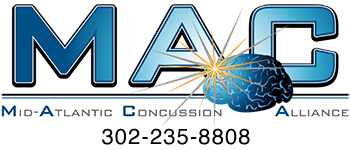Drinking alcohol when you have a concussion is not a good idea. The one or two drinks you normally consumed in the past over the course of an evening may be one or two drinks too much, especially while your brain is healing. After a concussion, your tolerance for alcohol can be reduced and you may be more sensitive to alcohol.
The effect of alcohol on individuals with brain injuries is yet one more health relationship that requires additional study. We know that alcohol changes our brain chemistry, at least temporarily, which makes us feel relaxed, happy or sad. And alcohol is a neurotoxin which means it potentially damages brain cells. When you compound this with the issues that can be caused by a traumatic brain injury (TBI), it means that even moderate alcohol consumption can negatively affect us while the brain is healing.
Drinking with a Concussion: What’s the Problem?
“As a concussion specialist who has worked with thousands of TBI patients, I cannot stress this enough: Do not drink alcohol while recovering from a brain injury,” says Vincent Schaller, MD, DABFM, CIC, medical director and founder of Mid-Atlantic Concussion (MAC) Alliance. When it comes to this advice, he’s in good company.
- According to the Brain Injury Association of America, alcohol consumption following a brain injury is known to impair brain injury recovery and is not recommended. After sustaining a brain injury, many people find they are much more sensitive to the effects of alcohol – specifically its negative impact on cognition and an increase in symptoms of depression.
- The National Library of Medicine’s MedlinePlus recommends that concussed individuals not drink alcohol until they have fully recovered, because alcohol may slow down how quickly someone recovers from a TBI, as well as increase the chance of another injury. It can also make it harder to make decisions.
- The Model Systems Knowledge Translation Center (MSKTC), a resource and information clearinghouse for patients and caregivers run by the American Institutes for Research, recommends refraining from alcohol while recovering from a concussion or TBI in order to give the brain the best chance to heal.
- The MSKTC also notes that people with TBIs can be at risk for seizures, and that drinking may actually increase the risk of having seizures and can trigger seizures.
- The CDC (Centers for Disease Control and Prevention) warn that alcohol and other drugs (not approved by your doctor) may slow your recovery and put you at risk of further injury.
Facts About Concussion and Alcohol
Alcohol can:
- increase the risk of worsening issues related to brain injury, like depression.
- magnify cognitive problems (concentration, problem solving, memory and learning new information).
- affect mobility/balance, speech and fatigue.
A report in The Brain Injury Hub that says that “research shows alcohol can have a much worse effect on… adults with a brain injury than those without.”
Bottom line: If you’ve been diagnosed with a concussion, you need to take good care of yourself. Avoiding alcohol consumption simply makes good sense. Luckily, most people will recover completely from concussions. But if your symptoms persist, please contact your doctor.
About Mid-Atlantic Concussion (MAC) Alliance
We are committed concussion and TBI specialist focused on the welfare are recovery of our patients throughout the diagnosis, treatment and management of their concussions and TBIs. MAC alliance uses advanced technologies and treatments to help each patient on their individual recovery journey. We are headquartered in Hockessin, DE, and have another clinic in West Chester, PA. We also provide diagnosis and treatment with over 60 partners across Delaware, Maryland, New Jersey, New York, Pennsylvania and Virginia. To find the nearest MAC Alliance partner in your area, click here or call us at (302) 235-8808.
[Originally posted on 10.28.2021]
[Post updated on 11.05.2020]
[Post updated on 12.02.2022]








